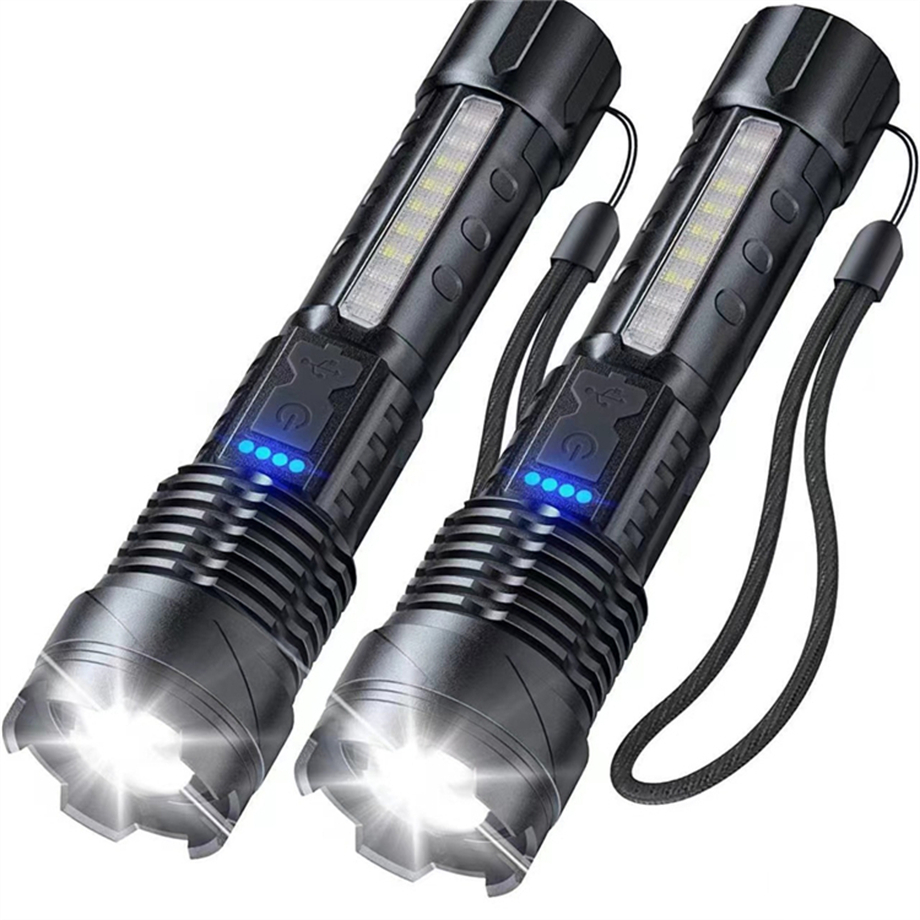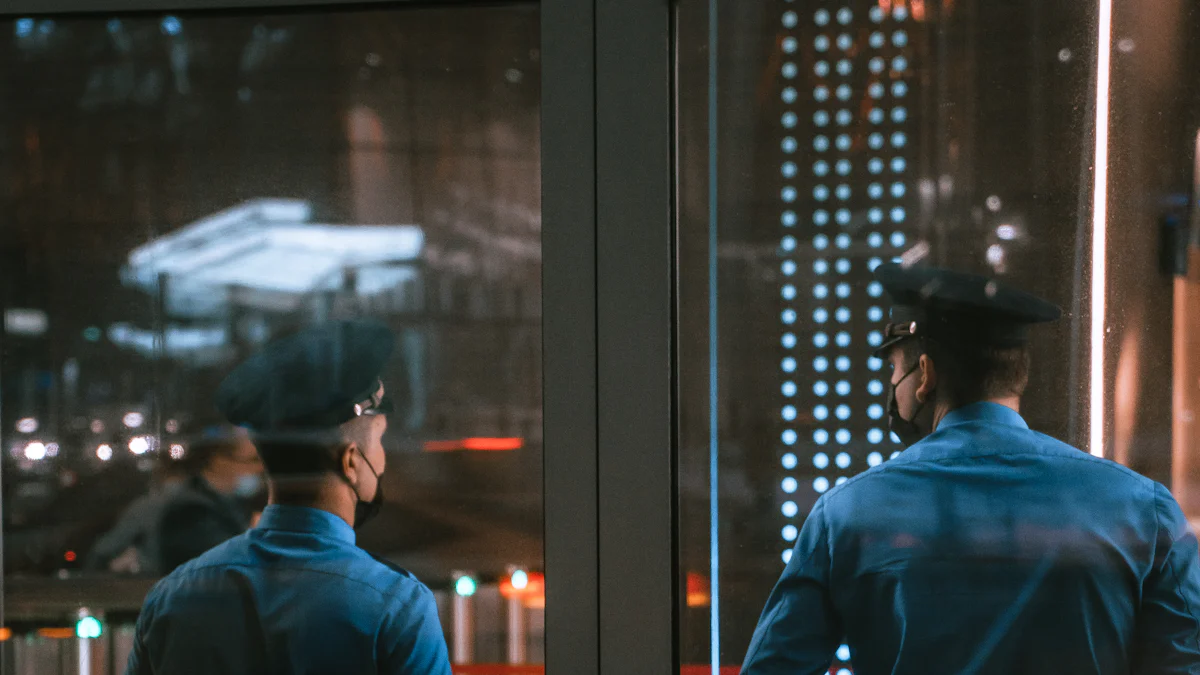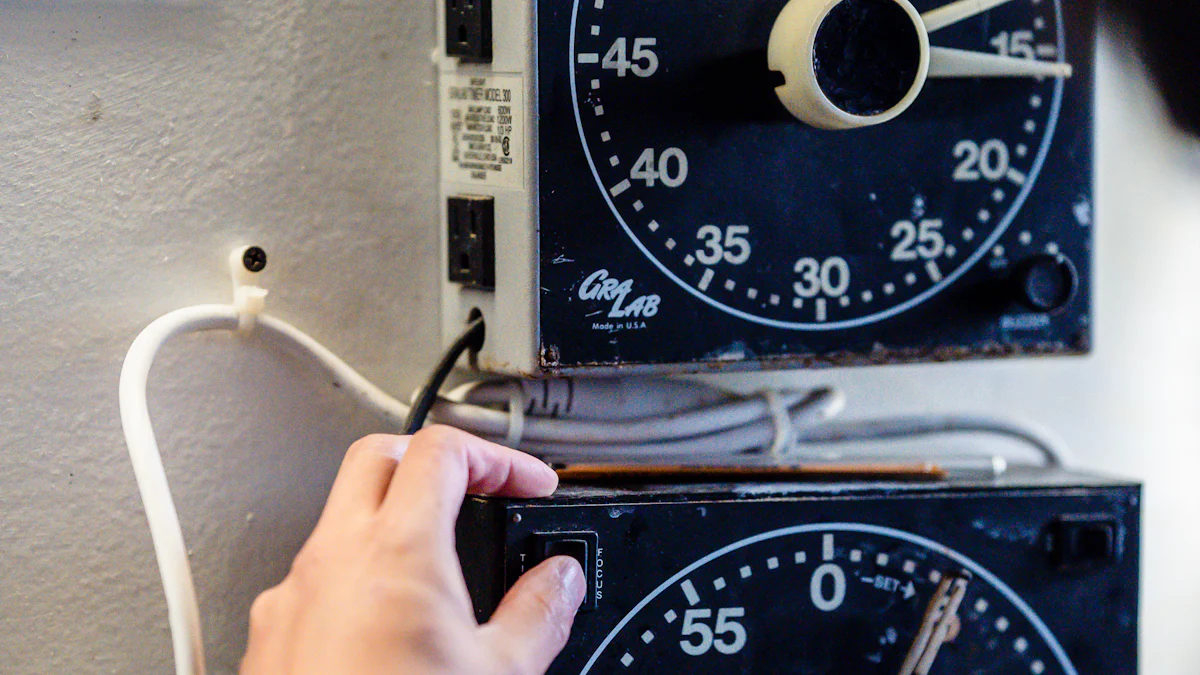Why Flashlight Regulations Are Important for Your Wholesale Business

Flashlight regulations are crucial for your wholesale business as they ensure the safety of your products and customers. Understanding Why Flashlight Regulations Are Important for Your Wholesale Business helps you evaluate performance through functional testing, including power output, beam distance, and battery runtime. These regulations enhance the safety of flashlights by assessing overheating protection, battery safeguards, and electrical insulation. By adhering to standards like ANSI/NEMA FL1 and CE Marking, you reduce the risk of accidents and guarantee high-quality products. Compliance not only protects your customers but also strengthens your business by building trust and reliability.
Key Takeaways
Focus on safety by making sure flashlights follow rules. This keeps customers safe and lowers accident risks.
Keep products high quality by testing them carefully. This makes sure they work well and satisfy customers.
Follow industry rules to stay out of legal trouble. Following rules builds trust and improves your brand's image.
Train your team on how to check product quality. A well-trained team keeps products safe and reliable.
Pick trusted suppliers who sell approved products. This helps you follow rules and makes quality checks easier.
Why Flashlight Regulations Are Important for Your Wholesale Business
Ensuring Safety
Safety is a top priority when it comes to flashlights. As a wholesaler, you must ensure that your products meet safety standards to protect your customers and their environments. Flashlights with overheating protection, proper electrical insulation, and battery safeguards reduce the risk of accidents. For instance, mechanisms that prevent overheating during prolonged use ensure the flashlight remains safe to handle. Similarly, features like short circuit protection in batteries enhance the security of your space by preventing potential hazards.
Adhering to safety regulations also ensures that your flashlights provide proper lighting in critical situations. Whether illuminating walkways or ensuring well-lit entrances, reliable flashlights contribute to safety and security. By following standards like ANSI/NEMA FL1 and UL Listing, you demonstrate your commitment to delivering high-quality LED flashlights that prioritize user safety.
Maintaining Product Quality
Quality is the backbone of any successful wholesale business. Flashlight regulations help you maintain consistent product quality by addressing common issues. For example, testing ensures that switches function properly, battery compartments fit securely, and LEDs are free from defects. The table below highlights key quality aspects that regulations aim to address:
Quality Issue | Description |
|---|---|
Functionality of Switches | Verify the functionality of on/off switches and control mechanisms. |
Battery Compartment Integrity | Inspect for corrosion or improper fitment in the battery compartment. |
LED and Optics Quality | Check for dead pixels and defects in the LED and inspect lens cleanliness. |
Power Output | Measure light output in various modes and compare with specifications. |
Beam Distance | Assess the effective distance the flashlight beam can cover. |
Battery Runtime | Test the runtime on different power settings to verify claimed battery life. |
By adhering to these standards, you ensure that your flashlights deliver the right illumination for various needs. High-quality LED flashlights not only meet customer expectations but also enhance your reputation as a reliable wholesaler.
Supporting Legal and Industry Compliance
Compliance with legal and industry standards is essential for your business. Regulations like the ANSI/NEMA FL1 Standard, IEC 60529 (IP Code), and CE Marking ensure that your flashlights meet performance and safety benchmarks. For example, the ANSI/NEMA FL1 Standard defines test procedures for light output, water resistance, and impact resistance. These guidelines help you verify that your products perform as advertised.
By complying with these standards, you avoid legal issues and build trust with your customers. Wholesalers who prioritize compliance demonstrate their commitment to delivering high-quality LED flashlights that meet both safety and performance expectations. This not only protects your business but also ensures the security of your space and the satisfaction of your customers.
Risks of Ignoring Flashlight Regulations

Legal Consequences
Ignoring flashlight regulations exposes your business to serious legal challenges. Regulatory bodies enforce strict standards to ensure product safety and performance. Selling flashlights that fail to meet these standards can result in fines, product recalls, or even lawsuits. For example, if your flashlights use inferior materials that cause overheating, authorities may hold you accountable for any resulting accidents. Non-compliance damages your reputation and creates financial burdens that could harm your business operations.
Adhering to regulations protects you from these risks. It ensures your products meet the required benchmarks for safety and performance. This compliance not only keeps your business legally secure but also builds trust with your customers.
Customer Dissatisfaction
When you ignore flashlight regulations, you risk delivering products that fail to meet customer expectations. Poor-quality flashlights often have issues like short battery life, dim lighting, or unreliable switches. These problems frustrate customers and lead to negative reviews. Dissatisfied customers may stop purchasing from you and share their bad experiences with others.
Meeting regulatory standards ensures your flashlights provide consistent lighting and reliable performance. Customers value products that work as promised. By prioritizing quality, you enhance customer satisfaction and encourage repeat business.
Safety Hazards
Neglecting flashlight regulations increases safety concerns for your customers. Flashlights made with inferior materials or poor design can cause accidents such as overheating, electrical shocks, or battery leaks. These hazards not only endanger users but also damage your brand's reputation. Customers rely on flashlights for security and proper lighting in emergencies. A faulty product can fail them when they need it most.
By following regulations, you minimize safety concerns and deliver products that customers can trust. Reliable flashlights ensure security and reduce the risk of accidents, protecting both your customers and your business.
Benefits of Adhering to Flashlight Regulations

Building a Strong Brand Reputation
Adhering to flashlight regulations strengthens your brand's reputation. Customers trust businesses that prioritize safety and quality. When your flashlights meet industry standards, they reflect your commitment to delivering reliable products. This trust encourages repeat purchases and positive word-of-mouth recommendations. A strong reputation also attracts new customers who value dependable lighting solutions.
Regulations ensure your flashlights perform as advertised. Features like consistent beam distance and long battery runtime enhance user confidence. Meeting these expectations builds credibility for your business. Over time, this credibility positions you as a leader in the flashlight market. A well-regarded brand not only retains loyal customers but also appeals to potential partners and distributors.
Enhancing Customer Satisfaction
Compliance with flashlight regulations directly improves customer satisfaction. Proper inspection processes guarantee that your flashlights meet high-quality standards. Customers appreciate products that function reliably in critical situations. For example, rigorous testing ensures switches work smoothly, batteries last as promised, and lighting remains consistent.
Key factors that enhance customer satisfaction include:
Proper inspection of flashlights ensures quality and reliability.
Compliance with industry standards enhances customer satisfaction.
Rigorous inspection processes promote user safety, especially in critical applications.
Satisfied customers are more likely to recommend your products. They value flashlights that provide dependable lighting and security. By adhering to regulations, you show that your business prioritizes their needs. This focus on quality and safety fosters long-term loyalty.
Achieving Long-Term Profitability
Following flashlight regulations supports your financial success. Non-compliance can lead to costly penalties, legal battles, and lost revenue opportunities. Regulatory fines and lawsuits disrupt operations and strain resources. These issues harm your financial stability and tarnish your reputation.
Compliance, on the other hand, ensures smooth operations and builds trust with clients. Consider these financial benefits:
Avoiding monetary penalties and legal costs protects your profits.
Maintaining compliance prevents operational disruptions, saving time and labor expenses.
A strong reputation attracts clients, boosting long-term revenue streams.
By delivering high-quality flashlights, you reduce risks and increase customer loyalty. Reliable products encourage repeat purchases and strengthen your market position. Over time, this approach ensures sustainable growth for your business.
Steps to Ensure Compliance with Flashlight Regulations
Understand Regulatory Requirements
Understanding regulatory requirements is the first step to ensuring compliance. Familiarize yourself with standards like ANSI/NEMA FL1, IEC 60529, and CE Marking. These guidelines define performance benchmarks for flashlights, including light output, water resistance, and impact resistance. Knowing these standards helps you inspect products before purchasing and ensures they meet safety and quality expectations.
You should also stay updated on changes in regulations. Subscribe to industry newsletters or join trade associations to access the latest updates. This proactive approach ensures your business remains compliant and avoids potential legal issues.
Work with Reputable Suppliers
Partnering with reputable suppliers is essential for maintaining compliance. Reliable suppliers provide high-quality flashlights that meet regulatory standards. Evaluate potential suppliers using the following criteria:
Criteria | Details |
|---|---|
Product Quality | Look for durable materials, high-performance LEDs, and certifications like CE or RoHS. |
Customization Options | Ensure the supplier offers branding, design, and functional modifications. |
Pricing | Competitive pricing without compromising on quality. |
Production Capacity | Ability to handle bulk orders and meet deadlines. |
Reputation | Check reviews, testimonials, and case studies for reliability. |
After-Sales Support | Warranty, return policies, and customer service availability. |
Working with trusted suppliers ensures you receive products that align with regulatory standards and customer expectations. This step also reduces the need for extensive quality control procedures on your end.
Implement Quality Control Measures
Implementing robust quality control procedures ensures your flashlights meet compliance standards. Follow these steps to inspect products before purchasing and verify their quality:
Verify the quality of materials and components used in production.
Confirm that flashlight dimensions adhere to specifications.
Test basic functions like switches and buttons.
Measure light output and beam quality to ensure proper performance.
Test battery life to confirm runtime matches claims.
Conduct drop tests to assess durability and impact resistance.
Evaluate water and dust resistance to verify IP ratings.
Ensure compliance with safety standards like ANSI/NEMA FL1 and CE Marking.
Use tools like functional testing equipment, safety assessment kits, and inspection tools for switches and battery compartments. These tools help you identify defects and maintain consistent quality. By implementing these measures, you deliver improved lighting for your business and build trust with your customers.
Train Your Team
Training your team is essential for ensuring compliance with flashlight regulations and maintaining product quality. A well-trained team understands the importance of safety standards and knows how to inspect flashlights effectively. This knowledge helps you deliver reliable products to your customers.
Start by educating your team about the key features of high-quality flashlights. Teach them how to identify issues like faulty switches, poor battery performance, or defective LEDs. Provide hands-on training sessions where they can practice inspecting flashlights for quality and safety. Use real examples to demonstrate common problems and how to address them.
Create a checklist for your team to follow during inspections. Include steps like testing light output, checking beam distance, and verifying battery runtime. A clear checklist ensures consistency and reduces the chances of overlooking important details. Encourage your team to document their findings to track patterns and improve future inspections.
Regular workshops and refresher courses keep your team updated on the latest flashlight regulations. Invite industry experts to share insights and best practices. This approach not only enhances their skills but also motivates them to prioritize quality in their work.
Effective communication is another critical aspect of training. Ensure your team understands the importance of delivering high-quality flashlights to customers. Highlight how their efforts contribute to customer satisfaction and the overall success of your business. Recognizing their role fosters a sense of responsibility and commitment.
Investing in your team’s training ensures they can identify and resolve issues before products reach your customers. This proactive approach strengthens your reputation and builds trust in your brand.
Flashlight regulations play a critical role in your wholesale business. They ensure your flashlights meet safety and quality standards, protecting both your customers and your reputation. By following these regulations, you reduce risks like accidents and legal issues. This compliance builds trust with your customers and positions your business for long-term success.
Prioritize these standards to deliver reliable flashlights that meet customer expectations. When you focus on quality and safety, you create a strong foundation for growth. Your commitment to compliance ensures your flashlights remain dependable in every situation.
FAQ
What are flashlight regulations, and why do they matter for wholesalers?
Flashlight regulations are standards that ensure safety, quality, and performance. They matter because they protect your customers, reduce legal risks, and enhance your reputation. Following these rules helps you deliver reliable products that meet industry expectations.
How can I find out which regulations apply to my flashlights?
Research standards like ANSI/NEMA FL1, CE Marking, and IEC 60529. Check your local laws and industry guidelines. Joining trade associations or consulting with regulatory experts can also help you stay informed about applicable requirements.
What happens if my flashlights don’t meet regulatory standards?
Non-compliance can lead to fines, product recalls, or lawsuits. It can also damage your reputation and result in customer dissatisfaction. Ensuring compliance protects your business from these risks and builds trust with your buyers.
How do I ensure my suppliers follow flashlight regulations?
Work with reputable suppliers who provide certified products. Request documentation like CE or RoHS certifications. Conduct regular audits and inspections to verify that their products meet safety and quality standards.
Do flashlight regulations affect my profit margins?
Yes, but in a positive way. While compliance may involve upfront costs, it prevents expensive legal issues and product recalls. High-quality, compliant flashlights attract loyal customers, boosting sales and ensuring long-term profitability.
See Also
Essential Advice for Finding Wholesale Flashlights for Your Company
Selecting Quality Flashlights for Your Wholesale Buying Needs
Guidelines for Picking Premium Flashlights for Wholesale Orders
Strategies for Acquiring Quality Flashlights for Your Import Venture
Successful Marketing Approaches for Your Flashlight Wholesale Enterprise
